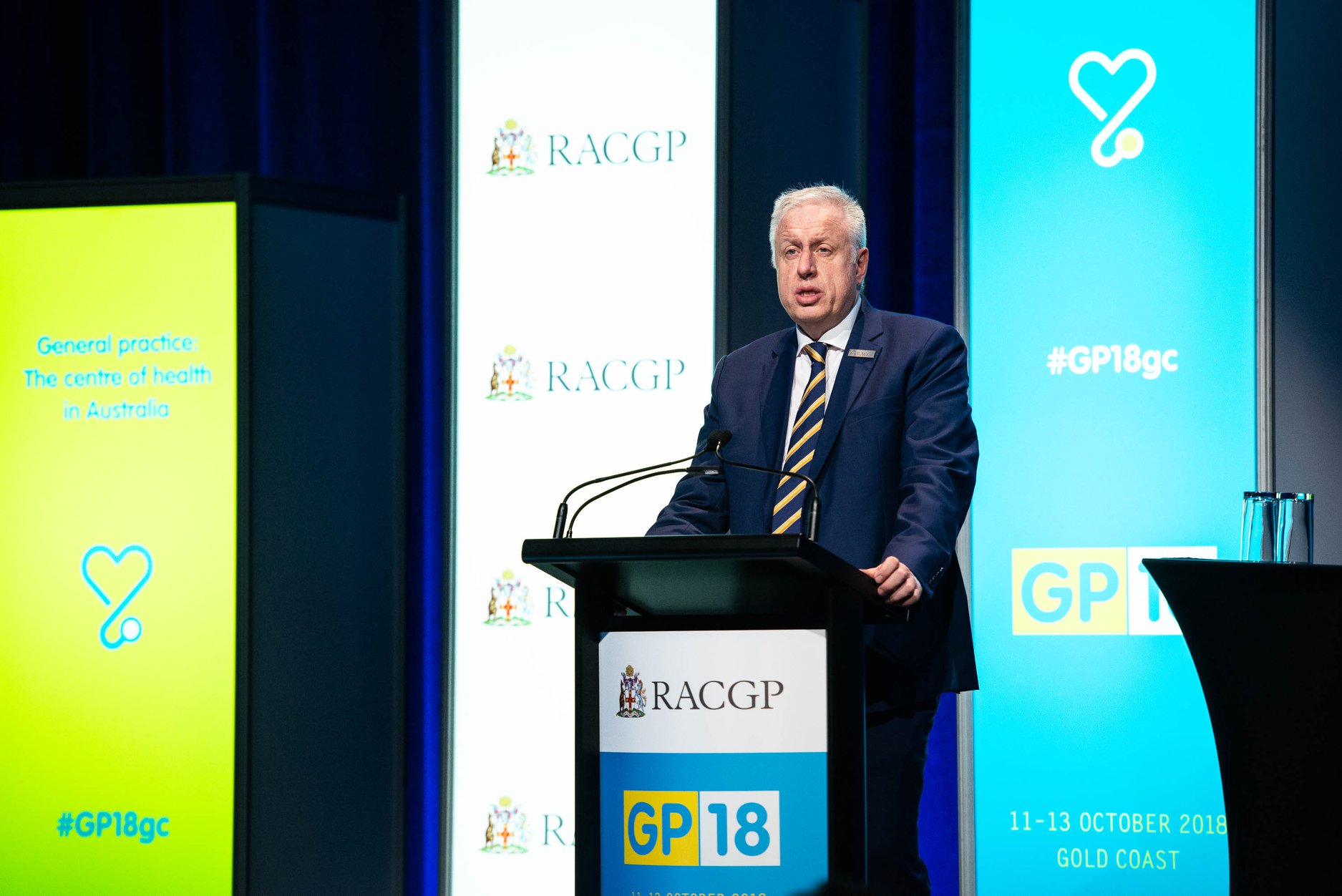 The Royal Australian College of General Practitioners (RACGP) is eager to work more closely with its New Zealand counterpart to develop policies that will help improve primary care on both sides of the ditch, according to its new president elect.
The Royal Australian College of General Practitioners (RACGP) is eager to work more closely with its New Zealand counterpart to develop policies that will help improve primary care on both sides of the ditch, according to its new president elect.
Speaking at GP 18, Australia’s largest GP conference, Dr Harry Nespolon expressed a keen interest in forging a tighter relationship with the College to find solutions to challenges general practitioners experience.
“There are a lot of issues that are common to both our countries that general practitioners face,” he says. “We should work closer together – we shouldn’t be reinventing the wheel and developing the same policy twice.”
Dr Nespolon officially took over the role as RACGP President at the four-day event in October, which was held in Australia’s Gold Coast and attracted more than 2000 delegates from across the country.
A New South Wales-based GP owing two practices, Dr Nespolon has held positions on numerous boards and committees, such as the Northern Sydney Health District and served as Chair of GP Synergy, the general practitioner training provider for New South Wales (NSW) and Australian Capital Territory (ACT).
He has worked for the Australian Medical Association, as a RACGP examiner and has been a representative on the Code of Conduct Committee for Medicines Australia for more than a decade. His academic background includes a Masters of Business Administration.
Dr Nespolon wishes to use his new role to help invigorate the provision of primary health care across Australia, saying that general practitioners there have been under considerable pressure for the last five years.
“Part of that (the pressure) is to do with the investment by governments and part of it has also been the way that I think general practitioners have been represented in this country,” he says.
While he feels the RACGP has achieved a great deal in raising its profile and level of influence in legislative circles over the last few years, observing that the current Minister of Health will not make a major change in health policy affecting primary health care without the College’s agreement, his keynote speech urged GPs to talk to their local MPs.
“It’s incredibly important (GPs speak to their local member of parliament) because we can make a lot of noise centrally but the way that we can make change is if we have all our GPs knocking on backbenchers’ doors,” he says. “(This means) that when they come to Canberra and talk to the Health Minister, they will ask him about what’s happening in general practice and that gives us a much stronger and more powerful voice.”
One of the differences between the primary care system in Australia and New Zealand is the way they are funded. In Australia, primary care is the responsibility of federal government agencies, while state government makes funding and policy decisions about hospitals and other secondary and tertiary care. Dr Nespolon says one of the biggest issues GPs face is the integration between the two systems and that often the rewards of good GP practice are not remunerated because of the way the financing system is operated.
Another area of concern is the number of medical graduates choosing to enter general practice.
“We are probably not training enough GPs,” he says. “It’s the usual question about what do we expect our general practitioners to do. As against New Zealand, where you have a much better integrated system than we do, general practitioners here in Australia are still required to see a patient before rebate can be generated.”
Dr Nespolon intends to continue to practice three or four days a week while taking on the presidential duties of his new role, saying he is a proud GP that loves going to work each day.